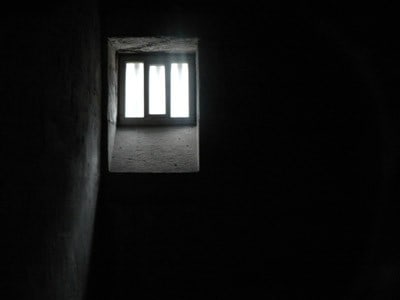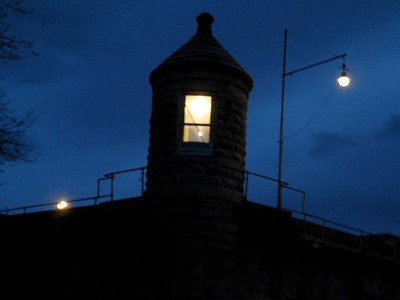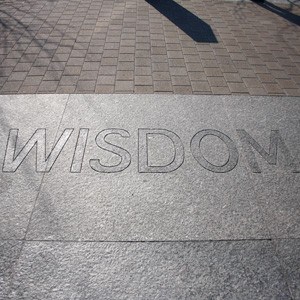The Dalai Lama on prison life

During the time he was teaching in New York City in September, 2003, His Holiness the Dalai Lama met privately with a group of formerly incarcerated people. They told him about their experience in prison and their endeavors to practice the Buddhadharma there. His Holiness later shared his reflections on this meeting when he spoke to the thousands of people attending his teachings at the Beacon Theatre and the estimated 65,000 who attended his Sunday morning talk at Central Park. What he said was similar, though not exactly the same, on these two occasions, and I share with you what I remember (I didn’t take notes, nor was I at the meeting).
His Holiness was very appreciative of the meeting and said how touched and saddened he was hearing the suffering that people experienced while incarcerated. He admired their efforts to learn and practice the Dharma in such a hostile and violent environment and said that the cultivation of compassion is extremely important.
He also commented on the injustices present in a prison system designed to punish rather than rehabilitate, a system which brands people as “evil” instead of seeing their potential and the purity of their Buddha nature. The structure of the prison system is in bad need of reform, he said. Looking directly at the audience, he stated emphatically, “But I am not a citizen of this country, you are. Therefore, you are responsible for changing this system. You need a system that helps both the incarcerated people themselves and society in general.” A loud round of applause by the audience followed this statement.
Having done prison work myself for several years—both corresponding with incarcerated people and teaching Buddhist groups in prisons—I was very moved by the depth of His Holiness’s knowledge of and care for people who are generally feared and therefore discarded by society. His care was not only for the individuals themselves, but for the system in general, in which everyone—incarcerated people, their families and friends, guards, and prison staff—is trapped. I wished that all those imprisoned could have heard His Holiness directly and experienced his tremendous compassion for them.
Venerable Thubten Chodron
Venerable Chodron emphasizes the practical application of Buddha’s teachings in our daily lives and is especially skilled at explaining them in ways easily understood and practiced by Westerners. She is well known for her warm, humorous, and lucid teachings. She was ordained as a Buddhist nun in 1977 by Kyabje Ling Rinpoche in Dharamsala, India, and in 1986 she received bhikshuni (full) ordination in Taiwan. Read her full bio.


